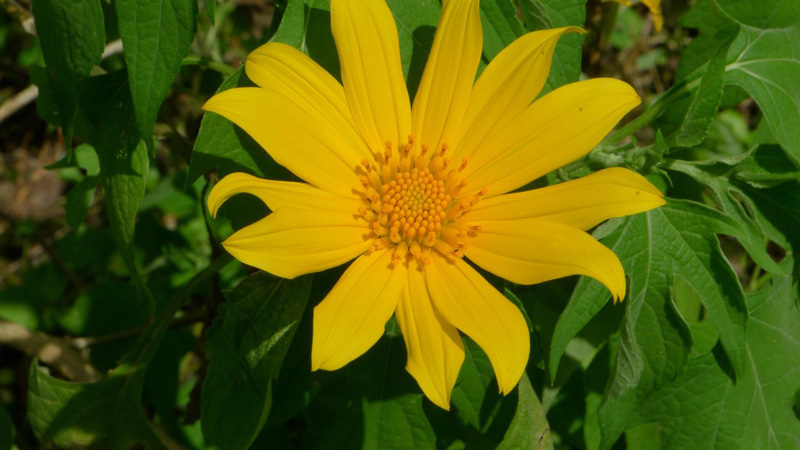Valuable weeds

Weeds provide many functions and products. Make the most of them to improve your agricultural production as they are good for:
- Mulch and compost material
- Organic matter
- Protecting the soil from erosion
- Products, such as fibre and paper
- Providing homes for pest predators and attracting pollinators
- Indicating what grows well as many weeds have productive plants for relatives: If a weed grows well, its productive relative probably does too.
Tithonia diversifolia (Tree marigold or Mexican sunflower) is a great example. It is an entrenched weed in most tropical countries. However, it has many uses and should be considered a valuable part of a productive farm!
Some of Tithonia diversifolia’s uses:
- Biomass producer − large amounts are produced which can be used for mulch, organic matter, compost material and liquid compost material.
- Soil improver − the roots loosen the soil and make it better for other crops.
- Green manure crop − it can be used as a green manure crop for agricultural land and rice paddies. See Soil (CH 5).
- Fertiliser − a fertiliser can be made directly from crushing the leaves and mixing them with water.
- Animal food − it is great food for rabbits, and is good for part of a chicken’s diet too.
- Firewood − it is a good fire fuel, especially for clay and other wood-burning stoves and ovens.
- Problem weed prevention − it has been used to out-compete other weeds that cause problems.
- Erosion control − it covers bare soil on sloping land.
- Drought tolerant − it is great for dry tropical regions.
There are many other land and water weeds − such as purslane, water hyacinth and duck weed − that can be used to fill many needs, turning problems into solutions.
For more weed information read:
Weed management section in Family gardens (CH 6)
Land and Crop Management section in Sustainable Agriculture (Ch 13)
Image: Mexican sunflower, Tithonia diversifolia is a weed of roadsides. Christmas Island, Australia, April 2011. John Tann from Sydney, Australia (Thankyou)

